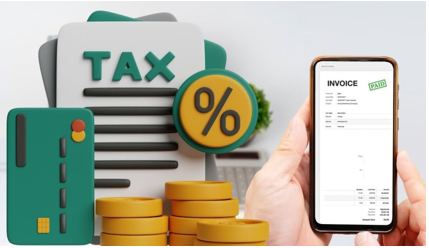INP-WealthPk
Ahmed Khan Malik
The e-commerce business operators in Karachi have expressed grave concern over the new taxes imposed on digital transactions, warning that it could severely impact small sellers, discourage online trade, and stunt the sector’s rapid growth, reports WealthPK.

Under the Finance Bill 2025–26, several new levies have been imposed on both domestic and international digital transactions. The measures include a 5% withholding tax on payments to digital vendors, a tiered withholding structure for local e-commerce marketplaces, and an additional 2% sales tax on gross revenues of online platforms, in addition to the existing 18% GST.
The new taxes also target Cash-on-Delivery (CoD) transactions, with rates varying by product category. The courier companies will be responsible for deducting and remitting taxes, placing additional pressure on both logistics firms and online sellers.

The sector demands that the federal government reconsider the new tax rates and thresholds, provide a 6- to 12-month transition period for compliance, offer exemptions or reduced rates for startups and small businesses, and engage in policy dialogue with the industry representatives. Without these adjustments, they fear Pakistan’s digital economy, seen as a vital driver of future economic development, could lose momentum.
“Applying these taxes without consultation or a transition period creates a burden many small businesses cannot bear,” Shoaib Bhatti, an e-commerce platform executive, told WealthPK. “This could push thousands of informal sellers back into the undocumented economy, which is contrary to the government’s goal of broadening the tax base. The taxation structure unfairly disadvantages digital sellers trying to operate transparently, while traditional, unregistered retailers face no such scrutiny,” he added.
Courier and banking industry representatives have also voiced logistical and legal concerns about the new policies. The Pakistan Banks Association (PBA) released a statement highlighting ambiguities in the law, particularly about the roles of financial intermediaries such as banks, fintech apps, and digital wallets in deducting and reporting taxes.
“There is no clear definition of what constitutes a ‘digitally ordered’ transaction,” Mustafa Zaidi, an e-commerce analyst, said. “This could lead to confusion and widespread non-compliance, even among businesses that want to follow the rules. The courier companies have similarly expressed concern over their new role as withholding agents for CoD deliveries. Many argue that the deduction of taxes before transferring funds to the sellers will lead to delays and a squeeze on already thin profit margins.
Pakistan’s e-commerce market, which has grown rapidly in recent years, is still in its infancy compared to regional counterparts. Experts estimate that the sector accounts for just 2% of GDP and about 4% of total retail sales. Karachi, the country’s commercial hub, houses a large portion of these operations, many of which are micro or home-based businesses.
Zaidi argued that the government should support e-commerce as a key engine for growth, digitalization, and employment, especially for youth and women-led enterprises. “The intention to bring digital sellers into the tax net is valid, but the way it’s being done without education, support, or a phased rollout risks choking the sector before it matures,” he said.
Credit: INP-WealthPk









